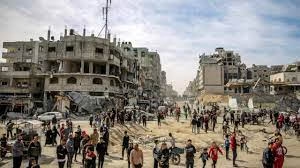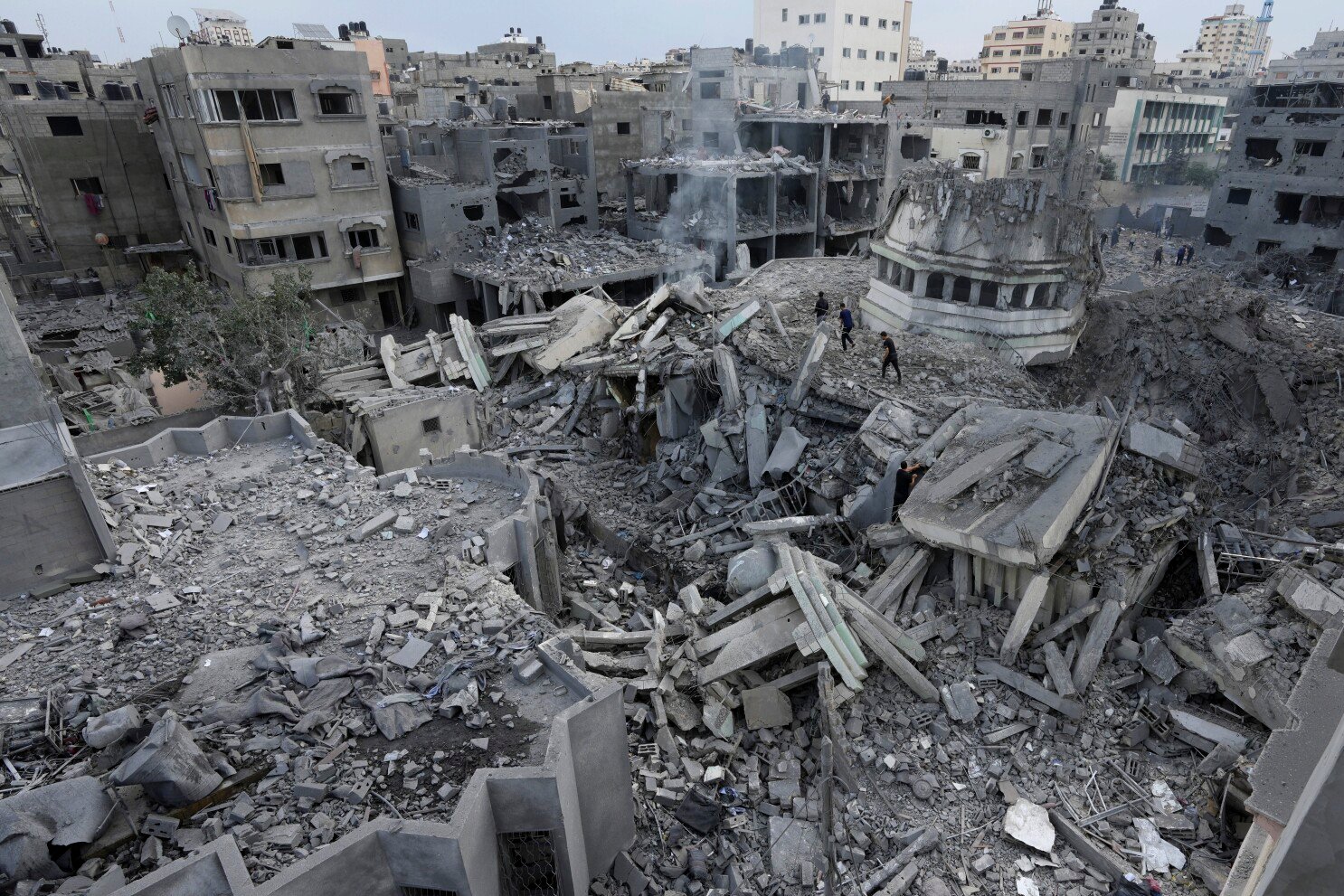A US-backed humanitarian organization is set to begin operations in Gaza by the end of May under a controversial aid distribution plan. However, it has called on Israel to allow the United Nations (UN) and other aid groups to resume their humanitarian deliveries to Palestinians in Gaza immediately, until the new infrastructure is up and running.
Humanitarian Crisis in Gaza
Since March 2, no humanitarian assistance has been delivered to Gaza, exacerbating the already dire situation. According to a global hunger monitor, approximately half a million people, or about a quarter of Gaza’s population, face the threat of starvation. The region has been in conflict since October 2023, when Israel and the Palestinian group Hamas engaged in a prolonged war.
Israel has accused Hamas of diverting aid, a claim the group denies. As a result, Israel has blocked the delivery of humanitarian assistance until Hamas releases all remaining hostages. Despite these concerns, Israel has expressed support for the US-backed humanitarian plan, which involves private companies rather than the UN and traditional aid organizations managing the aid distribution.
The US-Led Humanitarian Plan
The newly created Gaza Humanitarian Foundation (GHF) will oversee the distribution of aid. This initiative will involve US-based security and logistics companies, including UG Solutions and Safe Reach Solutions. The aid will be delivered to a limited number of “secure distribution sites” (SDS) in the southern part of Gaza, as per Israeli directives.
At these SDS locations, humanitarian assistance will be distributed to various aid groups, which will then pass it on to civilians in need. However, the plan has raised concerns over whether it will adhere to long-standing humanitarian principles such as neutrality, impartiality, independence, and humanity.
UN and Aid Groups Express Concerns
UN officials, including Deputy UN Spokesperson Farhan Haq, have raised significant concerns about the new operation. Tom Fletcher, the UN’s aid chief, criticized the plan for deviating from traditional humanitarian norms. The UN and other aid organizations are wary that the operation may be politicized and not be able to address the immediate needs of Gaza’s population effectively.
In an effort to address these concerns, Jake Wood, executive director of GHF, assured that the foundation would not share any personally identifiable information about aid recipients with Israel. Additionally, GHF stated that Israel had agreed to increase the number of SDS locations in order to serve the entire population of Gaza. Plans are also in place to help civilians who cannot access the SDS locations.
Appeal for Immediate Aid Access
In a letter to Israel, Wood requested the identification and deconfliction of sufficient locations in northern Gaza that could host GHF-run SDS within 30 days. He also urged Israel to facilitate the flow of aid through existing channels until the GHF’s infrastructure is fully operational. This, he said, is crucial to alleviate the immediate humanitarian pressure on Gaza’s population and prevent overcrowding at the SDS sites.
ICRC Raises Alarm Over Militarization of Aid
Following the announcement of the new plan, the International Committee of the Red Cross (ICRC) voiced ongoing concerns about the potential militarization and politicization of humanitarian aid. ICRC spokesperson Steve Dorsey emphasized that humanitarian aid should not be influenced by political or military agendas. He called for unrestricted, immediate, and unimpeded access to humanitarian supplies to address the overwhelming needs of Gaza’s civilians.
Conclusion: A Complex and Fragile Situation
The aid plan, although backed by the US and Israel, has generated significant opposition from key humanitarian bodies like the UN and ICRC, who fear it could undermine the impartiality and independence of aid efforts in Gaza. While the GHF is preparing to launch operations by the end of May, the situation remains fluid, and urgent calls continue for immediate aid access to Gaza’s population to address the mounting humanitarian crisis.



